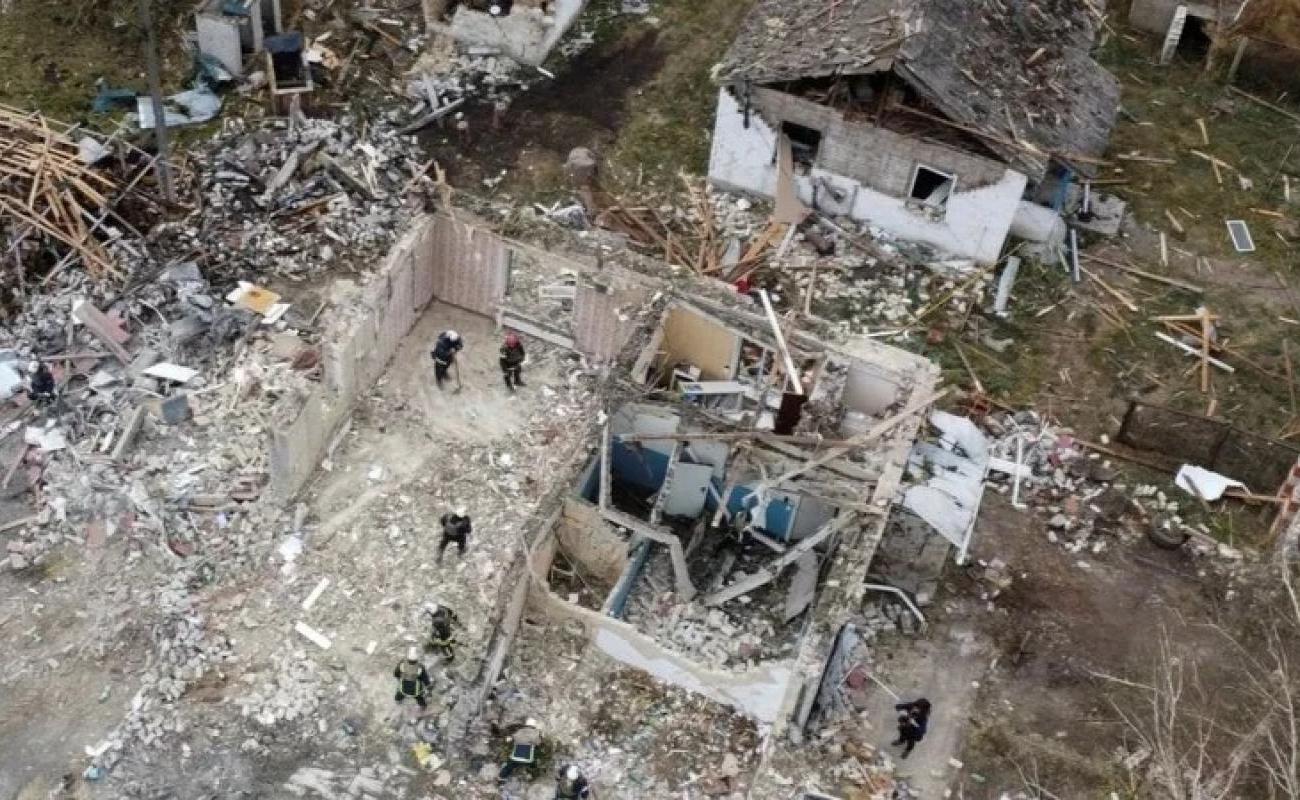UN finds Russia responsible for Hroza missile strike that killed 59 civilians

The missile strike on a café in Hroza, Kharkiv Oblast, was a deliberate attack by the Russian military, the United Nations office of the High Commissioner for Human Rights reported on Oct. 31
The strike, which killed 36 women, 22 men and an eight-year-old boy, was confirmed as a Russian attack by the Human Rights Monitoring Mission in Ukraine (HRMMU), after carrying out two fact-finding missions to Hroza on Oct. 7 and 10.
"Today, we are publishing a report into the events of October 5 that concludes there are reasonable grounds to believe that the missile was launched by Russian armed forces, and that there was no indication of military personnel or any other legitimate military targets at or adjacent to the café at the time of the attack,” the report said.
“Those killed — 36 women, 22 men and an eight-year-old boy — were all civilians, attending the reception after the funeral and re-burial of a local man who was a member of the Ukrainian armed forces. The blast completely destroyed the café and a small shop.”
The report details the devastating impact of the missile strike on Hroza, with 15 families losing two or more family members.
“The Russian armed forces either failed to do everything feasible to verify that the target was a military objective, or deliberately targeted civilians or civilian objects. Either scenario would be in violation of international humanitarian law," the UN report said.
Russian strike on Hroza in Kharkiv Oblast — what is known
The Iskander missile hit a cafe in the village of Hroza, Kharkiv Oblast, where about 60 villagers had gathered on Oct. 5. The building collapsed and people were trapped under the rubble, resulting in 59 deaths, including a eight-year-old child.
The regional prosecutor's office said that the cafe was hosting a wake, attended only by civilians, who were saying their final goodbyes to the deceased and buried soldier Andriy Kozyr, who was fatally wounded in Popasna. He was buried in Dnipropetrovsk Oblast, but his son Denys decided to rebury his father in his home village.
His son and his 20-year-old wife, Nina, were also killed in the cafe. About half of the village of about 100 people were there. Investigators believed that the attack on the café was highly precise, so they had been looking for those who may have directed it among the local population.
Ukrainian resilience, military advances, and daily enemy losses should be the response to Russian terror, President Volodymyr Zelenskyy said.
Police have identified the remains of all 59 people killed by Russia's deadliest missile strike of 2023 on a cafe in Hroza village, Kharkiv Oblast, Ukraine’s Interior Minister Ihor Klymenko reported on Telegram on Oct. 12, noting that 19 people were identified using mobile DNA laboratories.
Ukraine’s SBU security service identified the two brothers as 30-year-old Volodymyr Mamon and his younger brother, 23-year-old Dmytro Mamon, who directed the Russian Iskander missile strike on a cafe in Hroza village. The brothers’ Russian passports and their so-called police certificates in the ranks of the occupation "authorities" were shared by the SBU. Both suspects and their families fled to Russia before the Kharkiv oblast’s liberation and continued their service to Russia.
This was the deadliest Russian attack against Ukrainian civilians in 2023.
